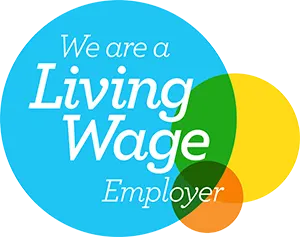When I became a Head of School just over a year ago now, it did not take long for me to be invited onto the Next Big Ten where I needed to pick a Working Group for the next two years. For me, this was a no-brainer – the decision had to be the Peer Review group.
Throughout my 17 year career, I have always felt a strong commitment to the reform of the current inspection system in England. As a class teacher of a core subject in those early years, I would have an inspector enter my room and sit at the back scribbling away on their clipboard. With the exception of a tired and harassed looking member of the senior team giving me a slap on the back later in the day along with a quiet and exhausted ‘well done’, that would pretty much be the extent of my experience when it came to external scrutiny. I have and continue to always find the internal scrutiny of those who are known to me to be more intense than someone who I will never see again.
However, as my career progressed (Head of English/Head of Year/Assistant Headteacher/ Deputy Headteacher), I began to understand the ‘thousand yard stare’ that I saw in the aforementioned senior leader’s eyes back in that first school. With several inspections under my belt, I fully appreciate that no two inspectors are the same, some being supportive and others not so. Saying this, there has always been one common denominator: a lurking feeling of threat: that they are there to catch you out and not to support.

How is this right?
I am not ‘anti-accountability.’ As public servants, it is our duty to be under a microscope in order to learn what we can do to improve the life chances of those young minds in our care. I see it as a privilege and a calling, however, the purpose of inspection in its current form seems to have gone from ‘critical friend’ to ‘critic.’ Leaders need to feel supported by a community of their peers – to be steered onto the right path if they are going off-piste. The majority of school leaders will be able to identify their school’s areas for development and with the Next Big Ten Peer Review Project, we are striving to put together a system that allows for collaboration and improvement without a threat that is seeing headteachers leave in their droves. It is sobering for me, as a school leader in his second year, to hear how an increasing percentage of my peers are leaving headship within their first three years. This increasing level of drop-out is unsustainable and I worry for the future of our children, should it continue.
With Peer Review, we want to change the narrative. This is an opportunity for headteachers – those who are in the know – to come together in order to create a template for review and scrutiny that does not set out to ruin the careers and lives of good people doing a challenging (and rewarding) job. By taking away the elements of threat and fear, the Peer Review process will allow leaders to have more honest conversations with one another in order to facilitate improvement for the young people they are honoured to serve.
In short, this will take away that ‘thousand yard stare’ and replace it with a vision that goes well beyond one thousand yards.
To find out more about the Next Big 10 Peer Review Programme, email sarah.seleznyov@bigeducation.org
Tom Raw, Head of Wapping High School








